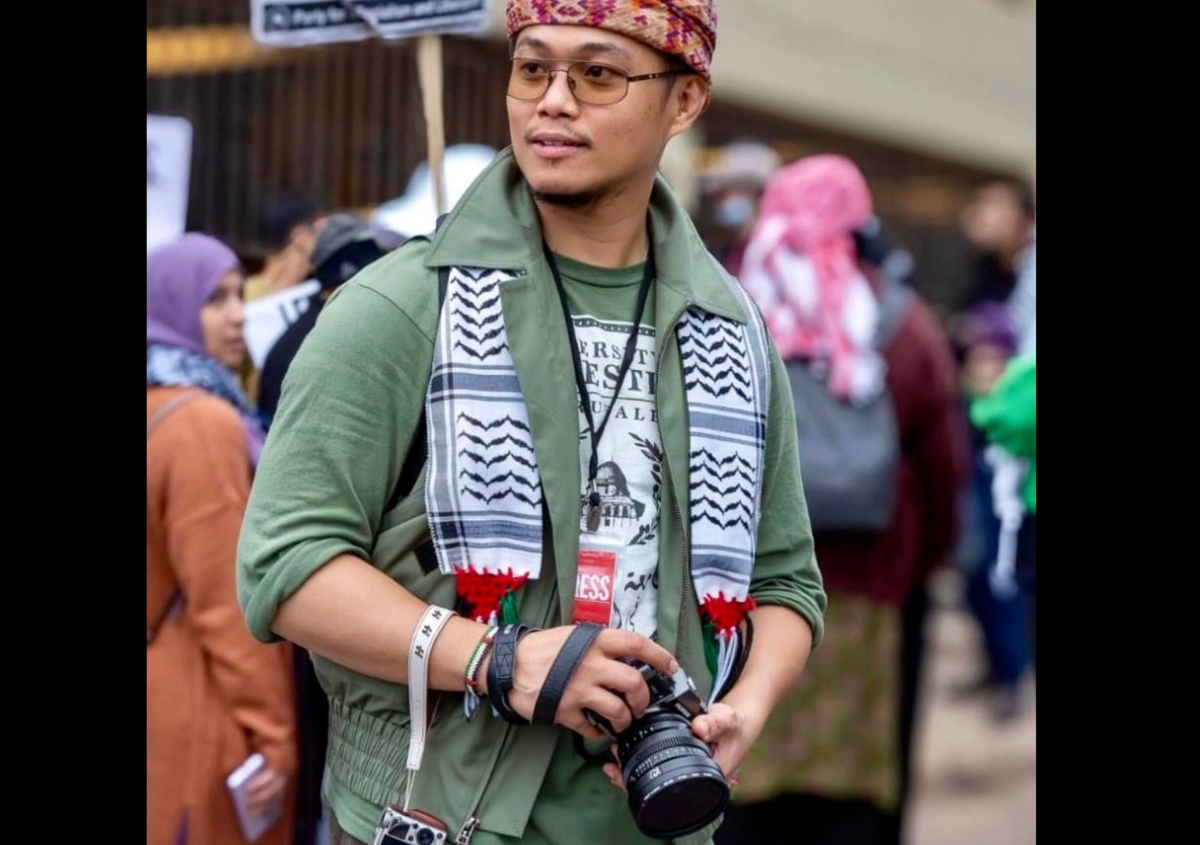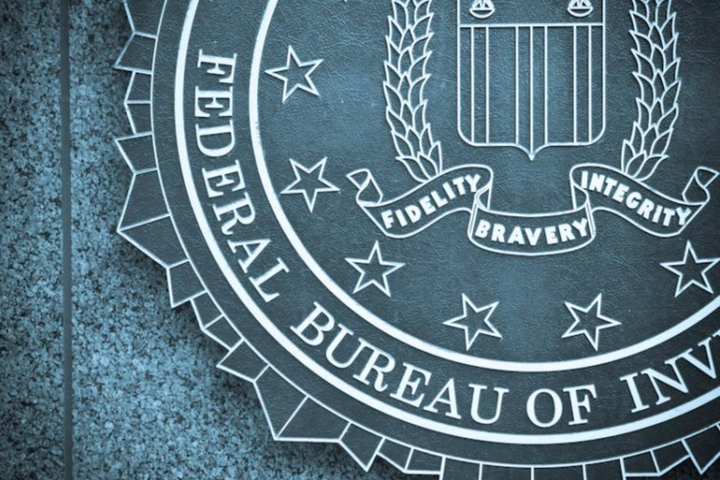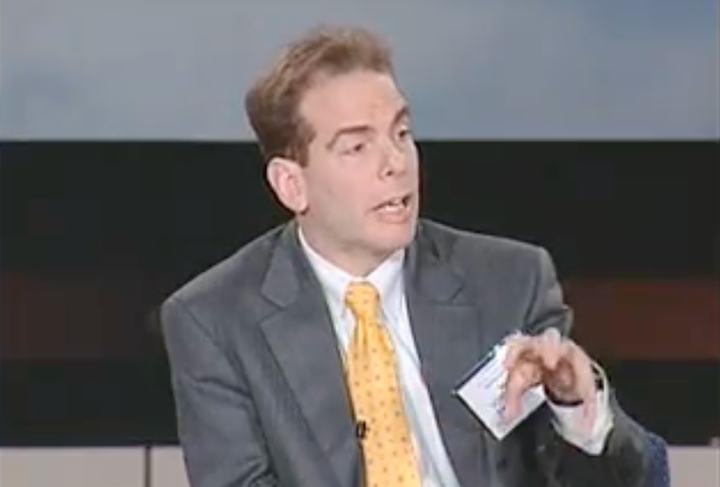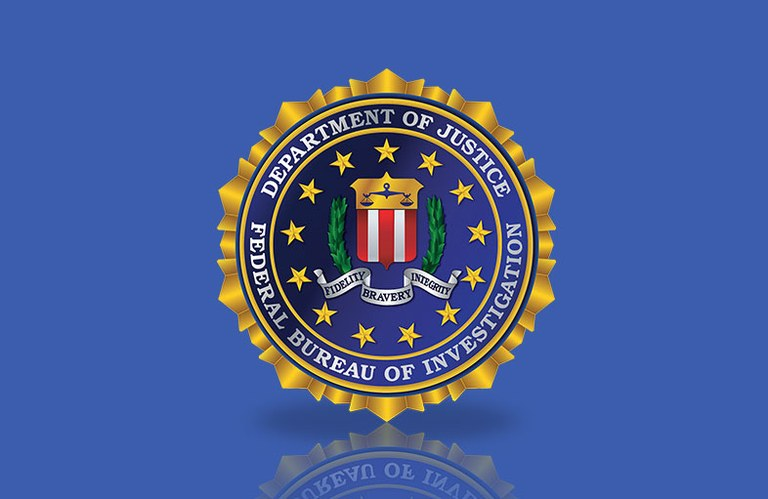FBI Allegedly Targeted Filipino American Journalist Who Is Now In ICE Detention
The FBI reviewed Ya'akub Vijandre’s immigration record and social media posts, and then recommended that immigration services terminate his DACA status

Filipino American journalist Ya'akub Vijandre was allegedly targeted by the FBI in retaliation for his refusal to become an informant. The FBI reviewed Vijandre’s immigration record and social media posts, and then recommended that immigration services terminate his DACA status, according to Vijandre’s attorneys.
Vijandre is currently detained at a for-profit ICE detention center in Folkston, Georgia, operated by GEO Group. He was arrested “at gunpoint” outside his home in Arlington, Texas, on October 7, 2025.
The United States Citizenship and Immigration Services (USCIS) pointed to his reporting on pro-Palestinian protests and various cases in the “global war on terrorism” to justify their actions, and an immigration judge accepted that Vijandre, a practicing Muslim, could be detained for engaging in First Amendment-protected speech.
The Freedom of the Press Foundation hosted a panel discussion on November 18 that brought further attention to ICE’s targeting of pro-Palestinian journalists. It featured British journalist Sami Hamdi and his wife Soumaya, who recounted his ICE detention. It also featured Vijandre’s colleague Sam Judy, a freelance journalist, and attorneys who represent Vijandre.
Last week, The Dissenter covered Sami Hamdi’s remarks during the discussion. It was one of the first times that Hamdi told the story of what happened to him, and in fact, he had just been released after 18 days in ICE detention and allowed to return to London.
Vijandre’s case is less high-profile and has received far less media attention. Yet it is arguably more significant than Hamdi’s case because Vijandre has lived in the U.S. since 2001 when he was 14 years old.
Beginning in 2013, the U.S. government granted Vijandre protection from removal under a policy aimed at protecting children from removal known as DACA. This status was extended for two years on May 3, 2024.
A habeas complaint submitted to challenge Vijandre’s detention in a federal court alleges that the FBI and Department of Homeland Security agents attempted to “recruit him as a confidential informant” around November 30, 2023.
“During this interaction, an FBI officer told Mr. Vijandre he is ‘a poster child for the way you’re supposed to do it,’ an apparent reference to Mr. Vijandre’s immigration status. Mr. Vijandre declined the offer,” the complaint recalls.
The FBI, not DHS, reviewed Vijandre’s immigration record and determined that he had “overstayed his non-immigrant visa” but was granted DACA status. A deportation officer recommended that his status be terminated and referred to several social media postings.
In the notice to terminate, DHS accuses Vijandre of supporting the “Holy Land Foundation 5,” Hamas, and Aafia Siddiqui. It accuses Vijandre of trying to help the Fort Dix Five raise funds.
“Your support for organizations and individuals who are known to engage in acts of terrorism presents public safety, national security concerns, and is a significant negative discretionary factor under the totality of the circumstances analysis,” the notice added.
Marium Uddin, the legal director for the Muslim Legal Fund of America (MLFA), said Vijandre was focused on “due process violations” and “miscarriages of justice and inhumane prison conditions in cases prosecuted in the war on terror,” including Siddiqui and the Holy Land Foundation.
On October 7, according to the MLFA, Vijandre was “arrested by ICE at his home. At least six ICE vehicles encircled Yaakub as he was leaving his home for work and with guns drawn, shouted at him to obey their commands, and arresting him.” It was “the morning after he filmed a Richardson City Council meeting discussing the unlawful ICE detention of a local Palestinian community leader.”
The local Palestinian community leader was Marwan Marouf, who the Dallas Observer described as a “North Texas man known for his involvement in the Muslim community and his leading of Boy Scout troops in Richardson.” He was detained for 60 days before agreeing to be deported to Jordan. (Marouf has a heart condition known as Brugada syndrome that could result in death unless monitored closely.)
At a bond hearing on November 3, Uddin contended that the government and an immigration judge “weaponized Yaa’kub’s faith and speech” against him and equated his “desire for peace and justice and freedom for Palestine as support for terrorism.”
The immigration judge “found that Ya'akub’s social media activity, which included videos of himself teaching martial arts, liking instagram posts of Qur'anic verses, and sharing footage of an event on Dr. Aafia Siddiqui’s case held at a Dallas mosque, constituted proof that Ya'akub endorsed and espoused terrorism. She equated that to him being a danger to the community and a flight risk,” Uddin said.
Uddin noted when references to “jihad” in Vijandre’s postings were “explained in its true meaning as a struggle, a spiritual and moral striving, the judge and the prosecutor dismissed and immediately equated it with violence and terrorism.”
'Did You Go As A Journalist Or As A Regular Person?'
Further alarming was the immigration judge’s line of questions about the video that Vijandre took at the Siddiqui event. The judge asked what the purpose was of posting an interview with an individual who highlighted the confinement in which Siddiqui lives at Federal Medical Center Carswell.
“I am a photojournalist and I was capturing events in our community, and it was to provide footage and information from the event,” Vijandre replied.
Later, the immigration judge said, “Right, but did you go as a journalist or as a regular person?” But it’s not like a person cannot engage in the First Amendment-protected activity of journalism if they attend an event as a “regular person.” Anyone with First Amendment rights has a right to freedom of the press in addition to freedom of speech.
Christopher Godshall-Bennett, a civil rights attorney, also argued during FPF’s panel discussion that the distinction between freedom of the press and freedom of speech does not matter. “One doesn’t actually make sense without the other.”
“The freedom of press is the freedom of someone who operates as a journalist to speak,” Godshall-Bennett added.
Sam Judy, who wrote about Vijandre for the Barbed Wire, reflected on his friend and colleague. They both covered pro-Palestinian protests in 2023 after Israel’s bombardment of Gaza expanded. Judy said there is a “great sense of depth” to Vijandre’s “reporting.”
“I know that [Vijandre’s] very strong, but he’s also currently in Folkston, which is a detention center in Georgia that has already had so many accusations of neglect and abuse and horrible conditions.”
“DHS wants to kill people’s spirits. They know that through the courts that a lot of things can be accomplished,” Judy declared.
FBI's History Of Retaliation Against Muslims Who Won't Be Their Informants
Certainly, this political persecution against Vijandre is emblematic of President Donald Trump’s administration. It shares similarities with the retaliation against Tufts University graduate student Rümeysa Öztürk or Mahmoud Khalil. But since at least President Barack Obama’s administration, civil liberties groups and legal defense organizations, like the MLFA, have fought against the FBI’s coercive and repressive attempts to turn Muslims into informants.
In 2013, the Center for Constitutional Rights filed a lawsuit against DHS, the FBI, and the Justice Department for allegedly placing American Muslims on the No-Fly List after they rejected efforts by the FBI to recruit them as informants.
The U.S. Court of Appeals for the Second Circuit ruled in 2024 that “U.S. government officials cannot use the No Fly List to try to coerce U.S. Muslims into spying on their communities against their religious beliefs.” Yet, as CCR also noted, “[T]he court upheld the dismissal of a lawsuit seeking damages from federal agents who engaged in the illegal practice.”
A decade later, the Council on American-Islamic Relations sued several U.S. government officials, including Attorney General Merrick Garland and FBI Director Christopher Wray. The lawsuit alleged that Customs and Border Protection (CBP) officers pressured American Muslims like Ihab Rashad to become informants.
Rashad claimed that a CBP officer “told him that he could help Mr. Rashad make his issues with travel go away as long as he provided them with some information.” It was strongly believed that “the CBP officer [had attempted] to use Mr. Rashad’s placement” in the “watchlist” for the Terrorist Screening Dataset as “leverage to coerce Mr. Rashad into become a government informant.”
In fact, Foad Farahi, who the MLFA has represented, is facing deportation because he has spent the last two decades challenging the FBI's practice of coercing Muslims into becoming informants.
Muslim journalists have had to worry about suspicionless searches and seizures by CBP officers that would compromise their confidential sources for at least the past 15-20 years. They have known that any of these privacy violations could undermine their work or perhaps give officials information for further retaliation, which would likely threaten their freedom to travel.
And now, under Trump, it is far worse. American Muslims who have yet to attain U.S. citizenship apparently do not have any First Amendment rights. They are not permitted to engage in speech and journalism on U.S. foreign policy as well as the treatment of political prisoners or persons convicted of terrorism offenses.
If they do exercise their freedom of expression, there is a really good chance that they may end up in detention fighting deportation like Vijandre.
*Watch the full discussion on "ICE's targeting of pro-Palestinian journalists"




Comments ()